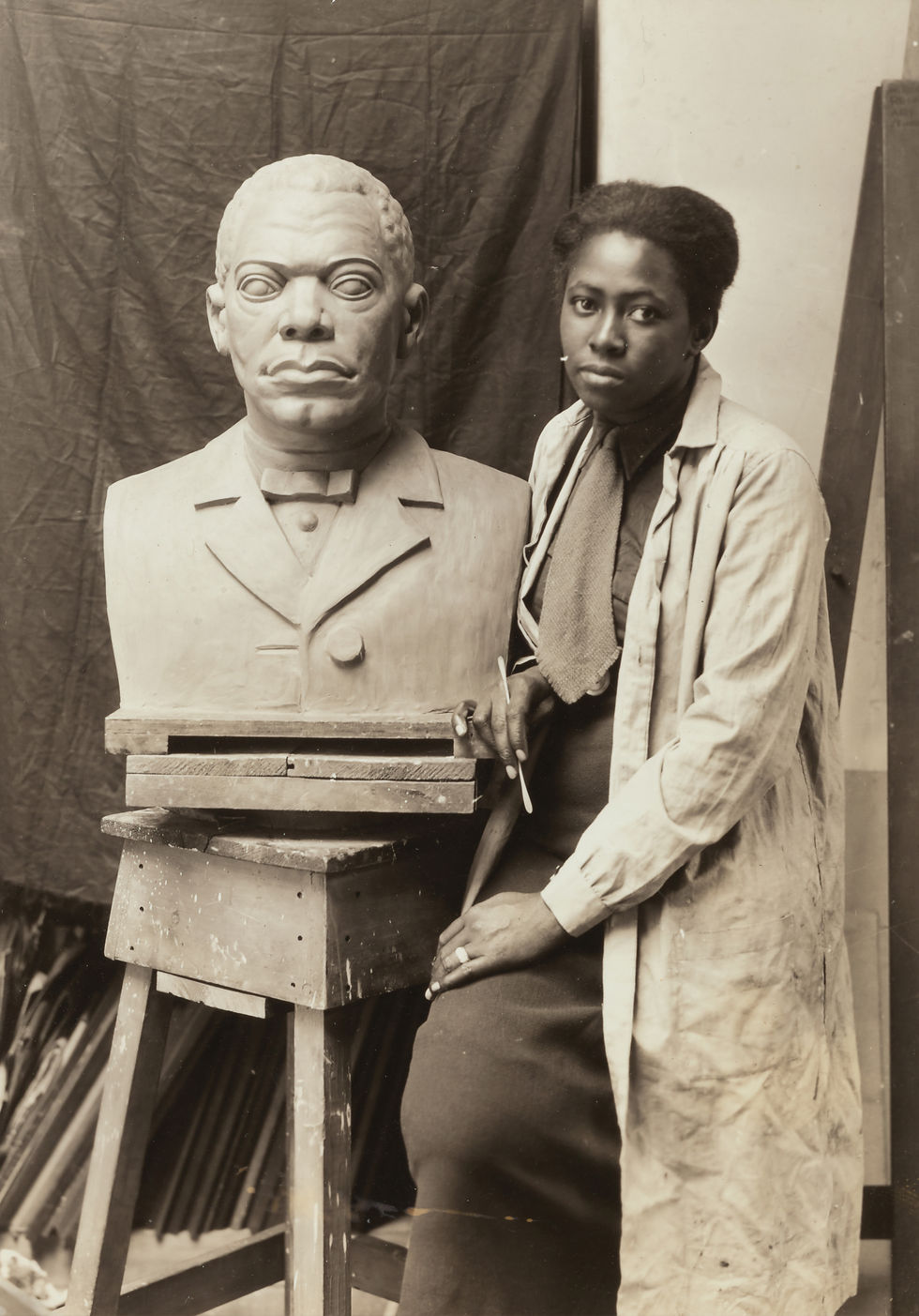The Legacy of Greenwood: How Racism Dismantled Black Wall Street and Continues to Impede African American Progress
- Karen Brittingham-Edmond

- Mar 13, 2025
- 4 min read
March 13, 2025
Social Justice

In the early 20th century, Tulsa, Oklahoma, became a beacon of economic empowerment for African Americans. At the heart of this thriving community was Greenwood, famously known as Black Wall Street--a testament to Black ingenuity and resilience. This vibrant district emerged under the leadership of O.W. Gurley, who envisioned a self-sustaining community founded on Black entrepreneurship. However, this dream was brutally interrupted by the violence of racism, leading to devastating repercussions that echo through generations.
Reference article: Echo News TV LLC Feb 17, 2023 "All Because We Thrived" - Black Wall Street By Umar Muhajjir (aka Stephen Thomas) https://www.echonewstv.com/post/all-because-we-thrived-black-wall-street-by-umar-muhajjir

O.W. Gurley, who moved to Tulsa in 1905, became the architect of Greenwood's success. Starting with a mere 40 acres, Gurley transformed his land into a flourishing economic hub. By 1921, Greenwood boasted nearly 300 Black-owned businesses, ranging from grocery stores to banks, brickyards to theaters, fostering a unique sense of community and financial independence. The term "Negro Wall Street," coined by educator Booker T. Washington, aptly highlighted the unprecedented success and self-sufficiency achieved by the residents of Greenwood.

Yet, this burgeoning success was met with hostility. On May 31, 1921, an unfounded accusation against a young Black man led to a horrific white mob attack that razed Greenwood to the ground--killing hundreds and leaving thousands homeless. This tragic event paled in comparison to the structural racism that paved the way for such violence. The destruction of Black Wall Street was not just a moment of chaos; it was a calculated reflection of systemic racism that purposefully obliterated African American progress.
The ramifications of this tragedy extended beyond the immediate loss of lives and property. As highlighted in the study "Gettin' on my Last Nerve": Mental Health, physiological and Cognitive Implications of Racism for People of African Descent, conducted by Wheeler, Brooks, and Brown, the psychological scars left by such acts of violence have far-reaching implications. Racism not only devastates communities but also inflicts deep mental, physiological, and cognitive damage on its victims, hindering their ability to thrive long after events like the Greenwood massacre. The authors underscore how these enduring impacts manifest in reduced opportunities for education, employment, and mental health resources, perpetuating a cycle of disadvantage.
"Gettin' on my Last Nerve": Mental Health, physiological and Cognitive Implications of Racism for People of African Descent, https://jpanafrican.org/docs/vol4no5/4.5Gettin.pdf

Imagine, for instance, the potential of every Black individual freed from chattel slavery had they received the promised 40 acres and a mule. Such conditions could have catalyzed a wave of creativity, business acumen, and innovation within African American communities, much like what was seen in Greenwood. Instead, systemic barriers have relegated African Americans to a continuous struggle for equality, preventing them from capitalizing on their capabilities and thriving in a society that has often denied them opportunities.
Today, the remnants of Greenwood's legacy serve as a moral reminder of African Americans' resilience and potential. Yet, they also highlight the unresolved issues of systemic racism and the need to pay African Americans their owed reparations. The loss of Black Wall Street is not merely a historical footnote; it is a lens through which we can examine the ongoing inequities that hinder African American progress. The vibrant life that once surged through Greenwood teaches us about the possibilities crushed by hatred and discrimination.
Michael Bloombergs New American Economy is a bipartisan research and advocacy organization (June 13, 2013) https://www.newamericaneconomy.org/news/former-nyc-mayor-bloomberg-group-rolls-ads-pushing-immigration-reform/
A pervasive behavior in the White House today, resulting from over 50 years of efforts to hinder African American progress and voting power, has emerged as a treasonous backlash against the Civil Rights Movement's successes. This movement, driven by Black citizens and allies from the 1940s to the 1960s, faces renewed white supremacist actions in 2025, undermining the Constitution and straining international relationships, all while blocking Black advancement in America. With the meddiling of racist Republicans and Democrats, who made matters worse by strategically placing insourced populations who were fully paid with the assistance of Americans tax dollars to assist in the oppression of the Black man in North America.
Erica Green New York Times, Feb 3, 2025 article titled: As Trump Attacks Diversity, a Racist Undercurrent Surfaces President Trump has promised a “colorblind and merit-based” society, while also equating diversity with incompetence.
Reflection

As we reflect on the story of Black Wall Street, it is crucial to acknowledge the ongoing fight against racism in today's society. While we commemorate the past, we must also develop genuine solutions to dismantle the barriers still hindering African Americans' progress. Only then can we ensure that the spirit of Greenwood lives on--not as a bittersweet memory but as fertile ground for future growth and success in communities across America.

Reference:
Wheeler, E. A., Brooks, L. J., & Brown, J. C. (n.d.). “Gettin’ on my last nerve”: Mental health, physiological and cognitive implications of racism for people of African descent. Department of Psychology, Towson University, Towson, Maryland. ewheeler@towson.edu, labrooks@towson.edu, jbrown0905@yahoo.com








Comments